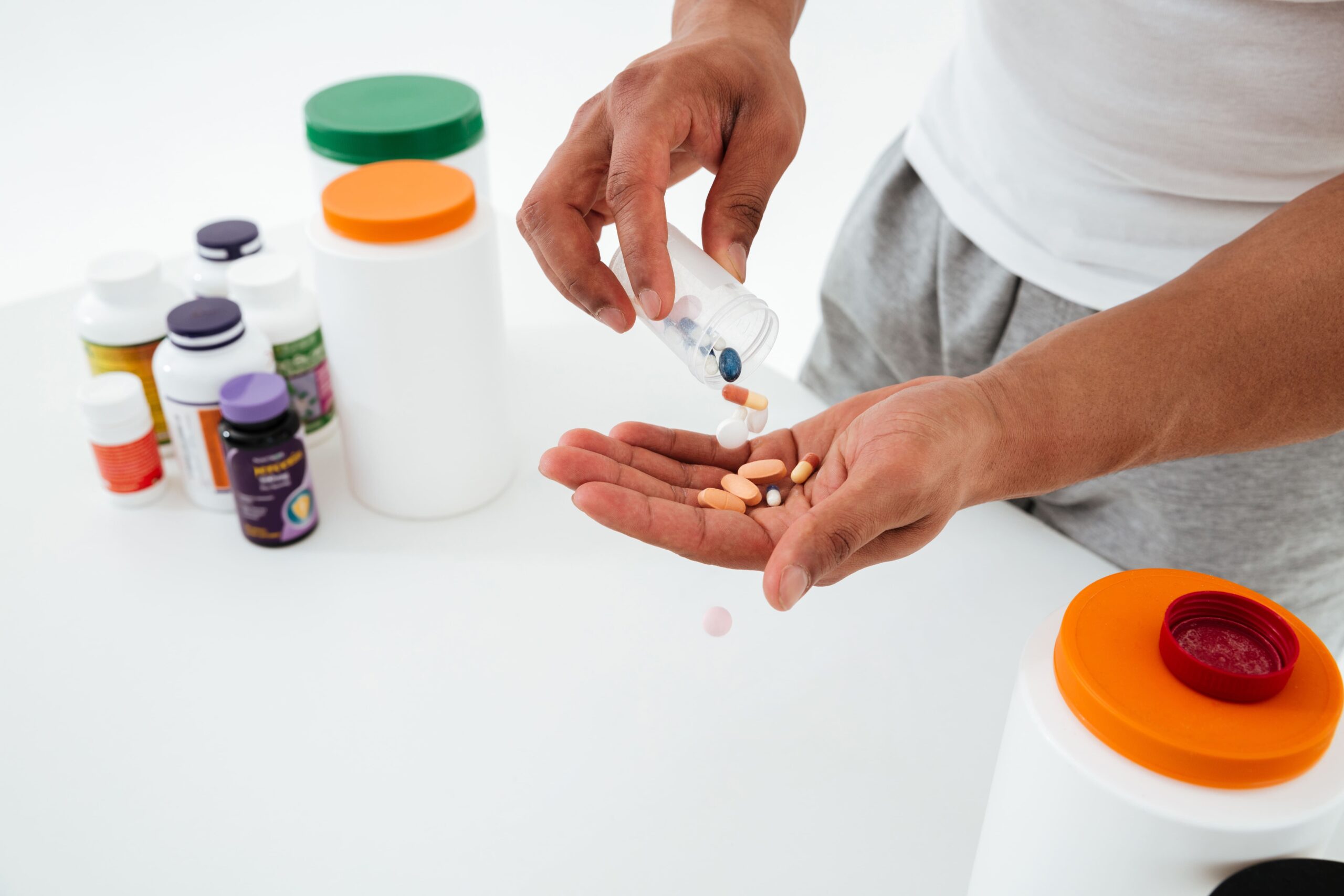What Vitamins And Supplements Should Not Be Taken Together?

Many Americans take daily supplements to support health, energy, and well-being. But did you know some of those capsules can actually cancel each other out—or worse, trigger side effects—if swallowed together?
At WellBeUp, we’re not here to sell you more pills. We’re here to help you take them right.
Below, we break down which vitamin and mineral combos don’t mix well, why timing matters, and how to optimize your routine for real benefits.
🚫 Iron + Calcium: Not the Best Match
Although both are vital nutrients, they don’t work well when consumed together. Calcium can interfere with the body’s ability to process iron, especially the plant-derived kind found in most supplements.
Tip: Try taking your iron supplement first thing in the morning, ideally on an empty stomach. Leave calcium for your lunch or dinner—it’s best absorbed with food. Keeping a gap of at least 2 to 3 hours is ideal.
⚡ C vs. B12: The Energy Drain
While both vitamin C and B12 play essential roles in health, taking them at the same time—especially in large amounts—can reduce how much B12 your body can absorb. This is particularly important if you follow a vegan or vegetarian diet.
What to do instead: Take B12 earlier in the day, such as with breakfast. Then wait until midday or later to add vitamin C to your routine.
🧷 Zinc & Copper: Tug of War
If your zinc intake is consistently high, your body may begin to struggle with absorbing copper efficiently—possibly leading to fatigue or neurological symptoms over time.
Pro tip: Either separate your zinc and copper supplements by a few hours or consider a formula that already contains a balanced dose (like 1–2 mg of copper).
🛌 Magnesium + Calcium: Split ‘Em Up
Taking these two together in large amounts might cause digestive discomfort. They use similar pathways for absorption, and this competition can result in bloating or loose stool.
Smart approach: Try having calcium with meals during the day, and magnesium in the evening before sleep to support relaxation.
🍃 Green Tea Cancels Out Iron
Green tea contains polyphenols like EGCG that can reduce the absorption of iron from food and supplements when consumed together.
Better strategy: Drink green tea at least two hours before or after taking an iron supplement—or wait a bit after an iron-rich meal.
💉 Vitamin E + Vitamin K: Caution Required
Vitamin E may thin the blood, while vitamin K promotes clotting. If taken together in large amounts, they can counteract each other and affect blood consistency—especially risky for people on anticoagulants.
Be safe: Only combine these under professional guidance if you’re taking medication for blood clotting.
🧬 B9 + B12: Misdirection
A high intake of folic acid may hide early signs of B12 deficiency, which could go unnoticed until more serious symptoms appear.
Advice: If you take folic acid regularly—whether for pregnancy, age-related support, or a plant-based lifestyle—ask your doctor to monitor your B12 levels as well.
🍽 Fat-Friendly vs. Water-Loving
Vitamins A, D, E, and K absorb best when taken with a meal that includes healthy fat (like a few almonds or avocado toast). On the other hand, B-group vitamins and vitamin C don’t need fat—and are better taken with water, preferably on an empty stomach.
Suggested timing:
- Morning – Take B-complex and vitamin C with a glass of water
- Midday – Have A, D, E, and K with lunch or dinner that includes some fat
💊 Multivitamins: Less Conflict, But Be Aware
While most multivitamins are formulated to avoid ingredient clashes, taking separate high-dose supplements on top of a daily multi can still lead to issues.
Reminder: Always double-check your total intake across products, and try to avoid stacking the same nutrient from multiple sources.
🚨 Watch Out for Drug Interactions
Supplements may sound harmless, but some can interfere with your medications:
- Vitamin K can reduce the effect of blood thinners
- St. John’s Wort may disrupt how antidepressants or contraceptives work
- Magnesium could reduce how well antibiotics are absorbed
- Biotin might distort lab test results—especially thyroid or hormone-related panels
Golden rule: If you’re taking any prescriptions, talk to your doctor or pharmacist before adding new supplements—even the “natural” ones.